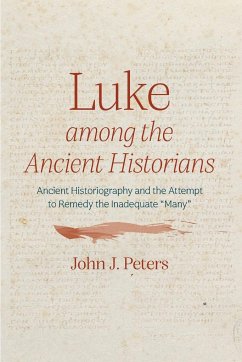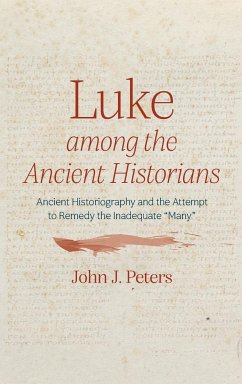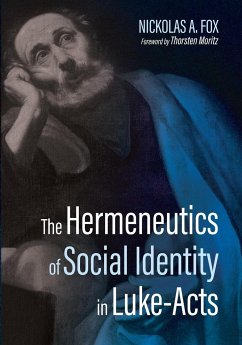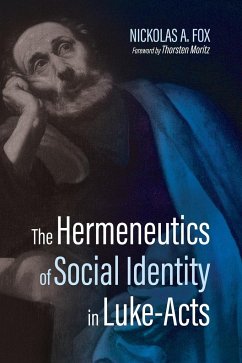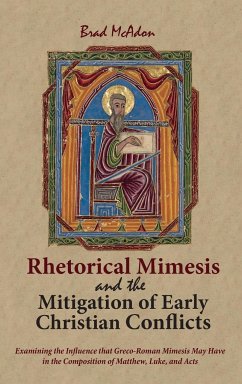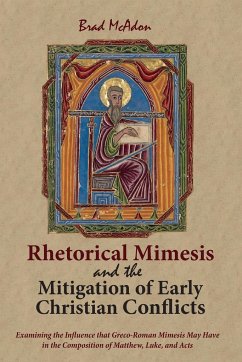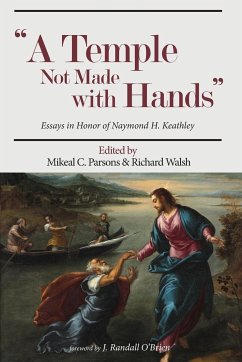For centuries scholars have analyzed the composition of Luke-Acts presupposing that the reference to ""many"" accounts in Luke's Preface indicates the written texts which served as the author's primary sources of information. To justify this portrait of Luke as a text-based author, scholars have appealed to analogies with the text-based authors Dionysius of Halicarnassus, Diodorus Siculus, Plutarch, and Arrian. Luke among the Ancient Historians challenges this portrait of Luke's method through surveying the origins and development of ancient Greek historiography in chapters on Herodotus, Thucydides, Polybius, Josephus, and Luke. By focusing on the values and practices of ancient historians, Peters demonstrates not only that ancient authors following the model of Thucydides regarded the testimony of eyewitnesses, as opposed to texts, as the proper sources for historians but that Luke emulated the values, practices, and craft terminology of the contemporary historiographical tradition. Taking seriously the self-presentation of Luke as a reporter of contemporary events who claims to write on the basis of ""eyewitnesses from the beginning,"" and personal investigation, this book argues against analogies with text-based historians who wrote about non-contemporary events and instead situates Luke within a portrait of the values and practices of historians of contemporary events.
Hinweis: Dieser Artikel kann nur an eine deutsche Lieferadresse ausgeliefert werden.
Hinweis: Dieser Artikel kann nur an eine deutsche Lieferadresse ausgeliefert werden.

